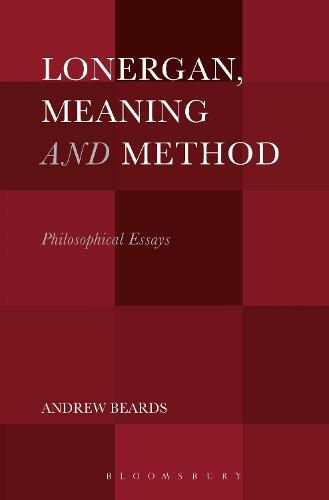Readings Newsletter
Become a Readings Member to make your shopping experience even easier.
Sign in or sign up for free!
You’re not far away from qualifying for FREE standard shipping within Australia
You’ve qualified for FREE standard shipping within Australia
The cart is loading…






Bernard Lonergan (1904-84) is acknowledged as one of the most significant philosopher-theologians of the 20th century. Lonergan, Meaning and Method in many ways complements Andrew Beards’ previous book on Lonergan, Insight and Analysis (Bloomsbury, 2010). Andrew Beards applies Lonergan’s thought and brings it into critical dialogue and discussion with other contemporary philosophical interlocutors, principally from the analytical tradition. He also introduces themes and arguments from the continental tradition, as well as offering interpretative analysis of some central notions in Lonergan’s thought that are of interest to all who wish to understand the importance of Lonergan’s work for philosophy and Christian theology.
Three of the chapters focus upon areas of fruitful exchange and debate between Lonergan’s thought and the work of three major figures in current analytical philosophy: Nancy Cartwright, Timothy Williamson and Scott Soames. The discussion also ranges across such topics as meaning theory, metaphilosophy, epistemology, philosophy of science and aesthetics.
$9.00 standard shipping within Australia
FREE standard shipping within Australia for orders over $100.00
Express & International shipping calculated at checkout
Bernard Lonergan (1904-84) is acknowledged as one of the most significant philosopher-theologians of the 20th century. Lonergan, Meaning and Method in many ways complements Andrew Beards’ previous book on Lonergan, Insight and Analysis (Bloomsbury, 2010). Andrew Beards applies Lonergan’s thought and brings it into critical dialogue and discussion with other contemporary philosophical interlocutors, principally from the analytical tradition. He also introduces themes and arguments from the continental tradition, as well as offering interpretative analysis of some central notions in Lonergan’s thought that are of interest to all who wish to understand the importance of Lonergan’s work for philosophy and Christian theology.
Three of the chapters focus upon areas of fruitful exchange and debate between Lonergan’s thought and the work of three major figures in current analytical philosophy: Nancy Cartwright, Timothy Williamson and Scott Soames. The discussion also ranges across such topics as meaning theory, metaphilosophy, epistemology, philosophy of science and aesthetics.